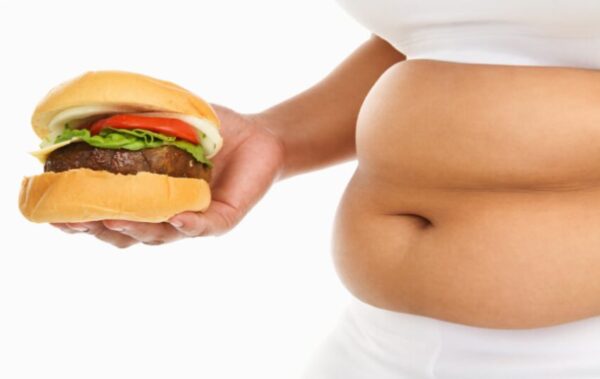Lifestyle
Does eating slowly help you lose weight? Here’s everything you need to know

Many people eat their food quickly and carelessly. This may lead to weight gain and other health issues.
Eating slowly may be a much smarter approach, as it could provide a number of benefits.
This article explores the benefits of eating slowly.
1. Eating too fast can cause weight gain
People who eat quickly tend to weigh more than those who don’t. They also tend to gain weight over time, which may be partially due to eating too fast.
Studies show that people who eat quickly tend to be heavier and gain more weight over time, compared with slower eaters.
2. Eating slowly helps you eat less
Your appetite and calorie intake is largely controlled by hormones.
After a meal, your gut suppresses a hormone called ghrelin, which controls hunger, while also releasing fullness hormones. These hormones tell your brain that you have eaten, reducing appetite, making you feel full, and helping you stop eating.
3. Eating slowly can increase fullness hormones
Eating too quickly often leads to overeating, as your brain doesn’t have enough time to receive fullness signals.
Additionally, eating slowly has been shown to decrease the amount of food consumed during the meal due to an increase in fullness hormones. Other research shows that young people with obesity experience higher levels of fullness hormones when they eat slowly.
4. Eating slowly can decrease calorie intake
Eating slowly increases the levels of gut hormones responsible for feeling full, which may help reduce calorie intake.
This spontaneous reduction in calorie intake lead to weight loss over time.
5. Eating slowly promotes thorough chewing
To eat slowly, you need to chew your food thoroughly before swallowing. This can help you reduce calorie intake and lose weight.
In fact, several studies have found that people with weight problems tend to chew their food less than people with normal weight do.
Other benefits of eating slowly
Eating slowly may also improve your health and quality of life in other ways, including:
- increasing your enjoyment of food
- improving your digestion
- helping you better absorb nutrients
- making you feel calmer and more in control
- reducing your levels of stress
How to slow down and lose weight
Here’s some advice to help you start eating more slowly:
- Avoid extreme hunger. It’s hard to eat slowly when you’re very hungry. To prevent extreme hunger, keep some healthy snacks on hand.
- Chew more. Count how many times you normally chew a bite of food, then double that amount. You may be surprised at how little you usually chew.
- Set your utensils down. Putting down your fork between bites of food will help you eat more slowly and savor each bite.
- Eat foods that need chewing. Focus on fibrous foods that require a lot of chewing, such as vegetables, fruits, and nuts. Fiber can also promote weight loss.
- Drink water. Make sure to drink plenty of water or other zero-calorie beverages with your meals.
- Use a timer. Set your kitchen timer for 20 minutes and do your best not to finish before the buzzer goes off. Aim for a slow, consistent pace throughout the meal.
- Turn off your screens. Try to avoid electronic devices, such as television and smartphones, while eating.
- Take deep breaths. If you begin to eat too quickly, take some deep breaths. This will help you refocus and get back on track.
- Practice mindful eating. Mindful eating techniques help you pay more attention to what you’re eating and gain control of your cravings.
- Be patient. Change takes time, as it takes about 66 days for a new behavior to become a habit.










